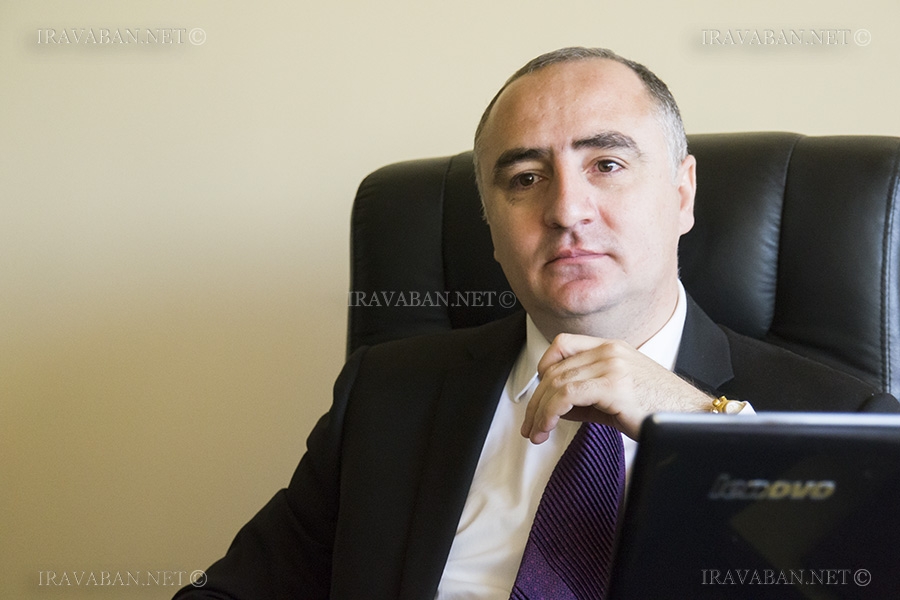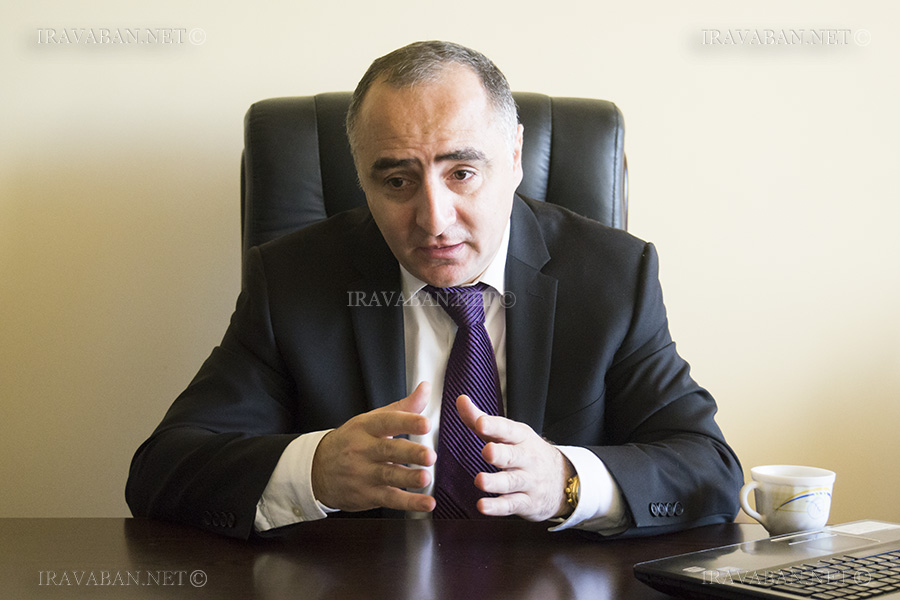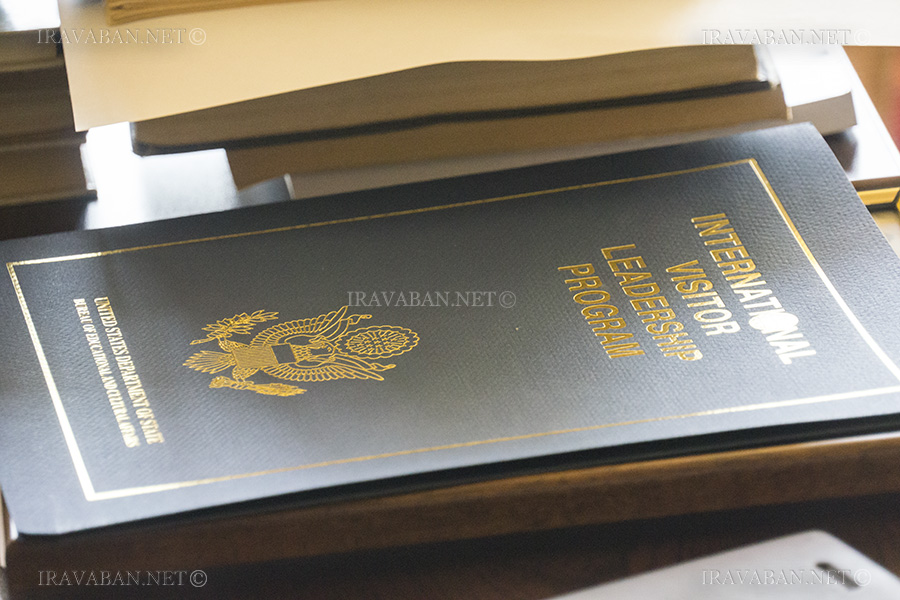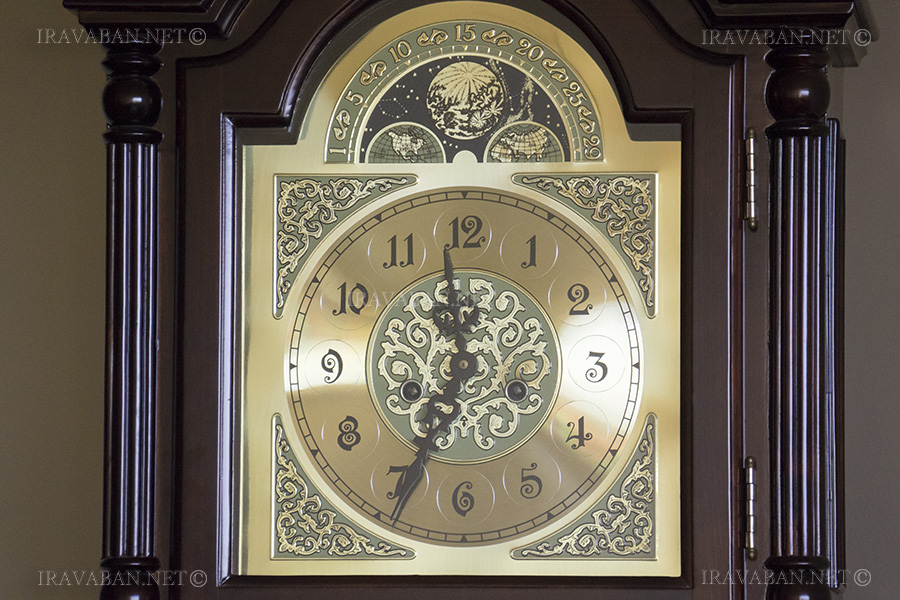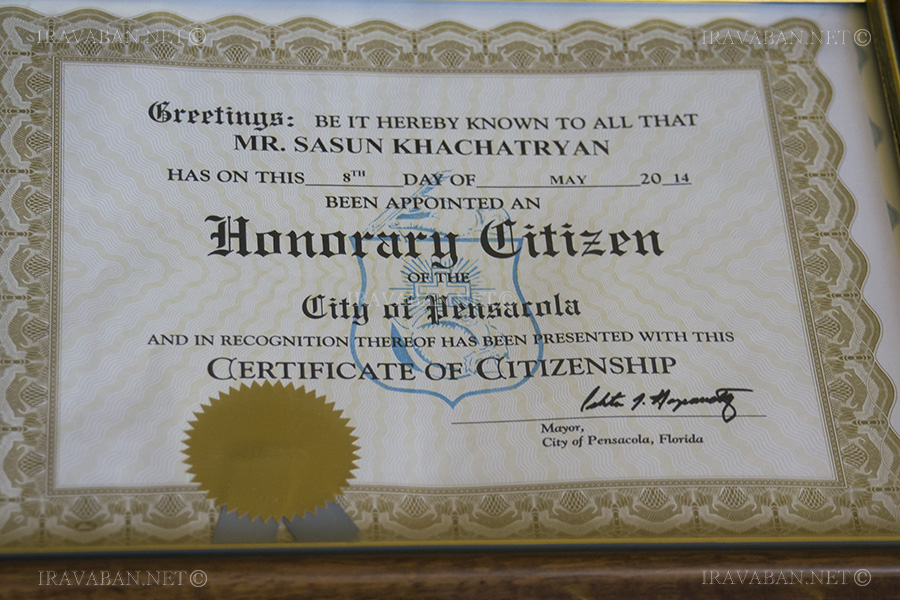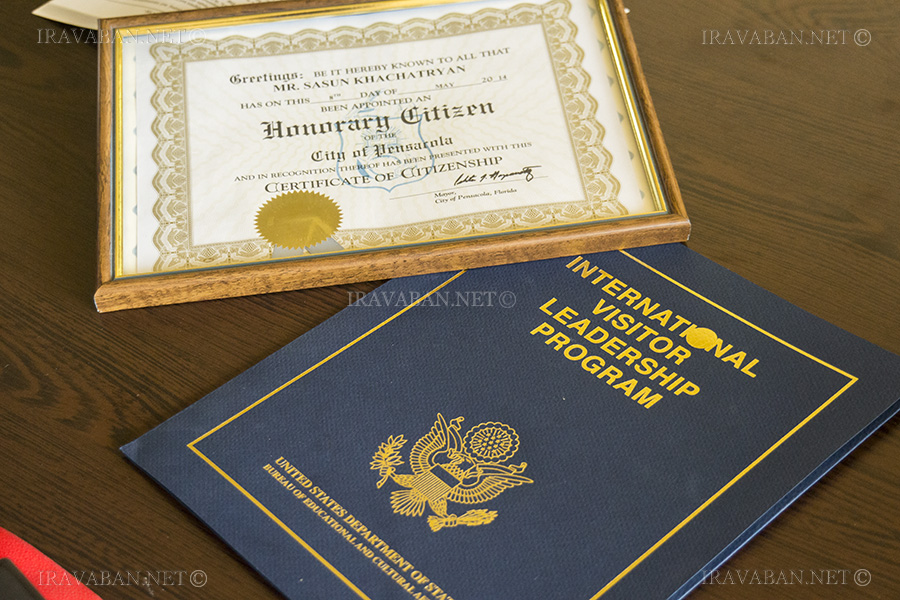Iravaban.net in collaboration with the US Alumni Association of Armenia launch a new Project. The “US Alumni Lawyers of Armenia” project is aimed to introduce the RA lawyers that have visited the US on educational and exchange programs. The first guest of the new project of Iravaban.net is Mr. Sasun Khachatryan, who has hold different senior positions in the prosecution system. In 2014, Mr. Sasun Khachatryan, visited the US in the scope of the International Visitor Leadership Program (IVLP), which is the premier professional exchange program of the U.S. Department of State. He participated in the study visits in five US States and got acquainted with the American experience in the sphere of anti-corruption fight, transparency and accountability. In the interview with Iravaban.net, Mr. Khachatryan told how a senior official may appear in the center of a scandal for using valuable things and lose job
Mr. Khachatryan, please tell about the program that you visited the US.
It is the International Visitor Leadership Program (IVLP), the U.S. Department of State’s premier professional exchange program. In 2014, when we went to the US, we studied the transparency, accountability and ethics in the management sphere. The main objective of this program was exchange of experience. We visited different entities where we discussed the issues of conflict of interests, and fight against corruption. We met with judges, prosecutors and different officials, as well as visited non-governmental organizations.
In one of the states we visited the electoral commission, and I was very impressed with the mechanisms of organization of the elections. The voting was electronic, when the ballots were cast in the ballot box, it was immediately fixed in whose favor it was done, and the information was transmitted to central computers. When the last ballot appeared in the box, the election results became known. Of course, having such a system is expensive. But if it were in Armenia, it would put an end to rumors regarding fraud.
In the United States, I was also impressed by the fact that the relationship between the managers and subordinates was very simple. The managers and subordinates would sit in the same office and if the supervisor was not introduced it would be really difficult to understand who is who.
Could you please tell about the experience you gained in on anti-corruption, transparency and accountability aspects?
Nearly all state institutions there had ethics commissions, and we met with their representatives as well. The ethics commissions examine the issues related to conflict of interest, transparency and integrity. For example, In the US if a judge were co-founder or shareholder of a Law Office, or in any form of conduct governing position in the office, then this information would be taken to the Ethics Committee, which would consider it. If a conflict of interest is detected, then the judge would not continue holding the position.
Or if the official who a monthly salary is $ 4,000 and who drives a $ 200 thousand worth of car, then the Ethics Commission will deal with this issue. And if a criminal element is found, the case will be forwarded to law enforcement agencies.
Speaking of transparency, I remember in the work of the legislative bodies in their states. Their activities are completely open. Not only a US citizen, but also any person has the right to freely enter the building, enter the Congressman’s office.
In one of the States we witnessed a very interesting case. We heard singing in the building of legislative branch. We were told that it was expression of protest against a bill. Around 25 people had formed a circle; they were singing applauding for about half an hour. And no one approached them, and ask what you do.
Another example, they have complete information on the purchase by the public authority. This is open.
I do not know about us now. How, in what way would you go to find out from whom the purchase was made, on what principle, and whether there was a tender or not. And when everything is open, you do not seem to want to be interested.
I also want to speak about the principle of balance of the authorities in the US. There is a very real separation of powers there. We were told that over 3 years the president is unable to pass a bill in Congress.
Any provision shall be extremely perfect in order to become law, and consistent with the interests of everyone so that it would pass by the Congress.
In the United States you have met various officials, public servants. In your opinion, what is the reason of their integrity?
In fact, it’s not so that their non-governmental organizations do not see any problems on this issue. They also are raising the issues related to conflict of interest and corruption occurrences. They even brought examples of scandals that had taken place. But if they found something there, they are consistent to the end.
For example, we have the Law on Freedom of Information, which regulates the issues of access to information. And every year, the “Golden Key” and “Rusty Lock” is given to organizations that were open, and vice versa, impeded the provision of information. The same structure can be awarded “Rusty Lock” every year, but what happens as a result. The organization continues working in the same manner as there is no problem with being called to liability for consistently infringing the law.
In other words, there should be sanctions.
Of course, there is an article in the Criminal Code, for failure to comply with the judgment of the Court. So what is a greater offense, failure to comply with the judgment or with the law?
In case of non-compliance with the law we apply to the court and oblige to comply with it.
Well, you know, it becomes a problem, and then you apply to the Court of Cassation and then to the European Court. Wouldn’t it be better if the head of the state entity just think about abiding to the law?
I cannot clearly say whether there are sanctions in the United States for failure to comply with the laws, but there, for example, no one thinks that they can avoid using seat belts in the car. It is a law, and that is all.
And at the same time, the state trusts in man as long as he does not prove that he is a criminal. When we were driving a car with my friend, he accidentally crossed the stop line. I thought we shall be fined, my friend said that no fine would be imposed as they saw that it was not done intentionally. There is a trust in man and that is the greatest value.
Well, what is the secret that they respect the rules of ethics, and their work is transparent and accountable? Finally the all these together leads to elimination of corruption.
I am not sure whether a chairman of the Court of Appeals or one of the Ministers of Justice said that justice is very expensive. If you want to have justice, you have to pay. Now you say, a man must work diligently, and do everything on time. Investigators salaries has been raised only recently, before that that they were receiving 120-130 thousand drams. How could an investigator with such salary, who does not have any other income work fairly, if he is unable to take care of his family and secure their dignified life. The prosecutors, judges, investigators should be paid well, so that they would first of all quake of their workplace and do not think of other income, be diligent and not think of making both ends meet but have a dignified life
In your opinion, what is the cause of corruption in our country?
We traditionally used to solve the problems through relationship. There is a habit, even if you act 100 percent right, they say, “OK let one call and tell.” This is a mentality. The new generation, the generation of our children do not think so anymore. Mentality must change, visible steps shall be taken to fight against it.
… When a public official driving a 100 thousand dollars’ worth car says that you cannot prove that I inherited from my grandmother that money for the care, we will not go any further. For example during a meeting in Sicily we met with Georgians and they told the burden of proof about money laundering and corruption is laid on the accused. In other words, the accused has to prove that he acquired wealth the legal way.
By the way, the new Criminal Code provides criminal responsibility for illicit enrichment. What do you think of this provision?
You know, there are a few bad laws. If this will be used I am only for it.
During your activity you defend charges of corruption crimes as well. What would you say about the difficulties in handling such cases?
Among us in Armenia there is a habit while educating the child from an early age to teach him “don’t tell about it.” And if in the civilized world refusing to testify is habitual for the criminal world, in our country it is typical for everyone. Even the granny selling sunflower in the yard does not want to testify. So what can we say about the people involved in corruption crimes. We use a method which is accepted worldwide. We promise a lenient penalty: that is in order to catch a big fish we let the small one go.
And finally it is already four years the US Alumni Association of Armenia operates in the RA. Have you already joined the USAAA as a US Alumni, and how are you going to assist in the Association’s activities to make them more useful and public.
Frankly speaking, in 2014, after returning from the US, I received invitation letters from the US Alumni Association of Armenia to participate in activities organized by the Association. But I was not able to participate due to work overload. For almost two months I have a lighter schedule and shall be able to participate, to be useful as much as possible and to contribute to the development of the association.
Interview: Astghik Karapetyan
Photos Aleksander Sargsyan
Author of the Idea: Karen Zadoyan

